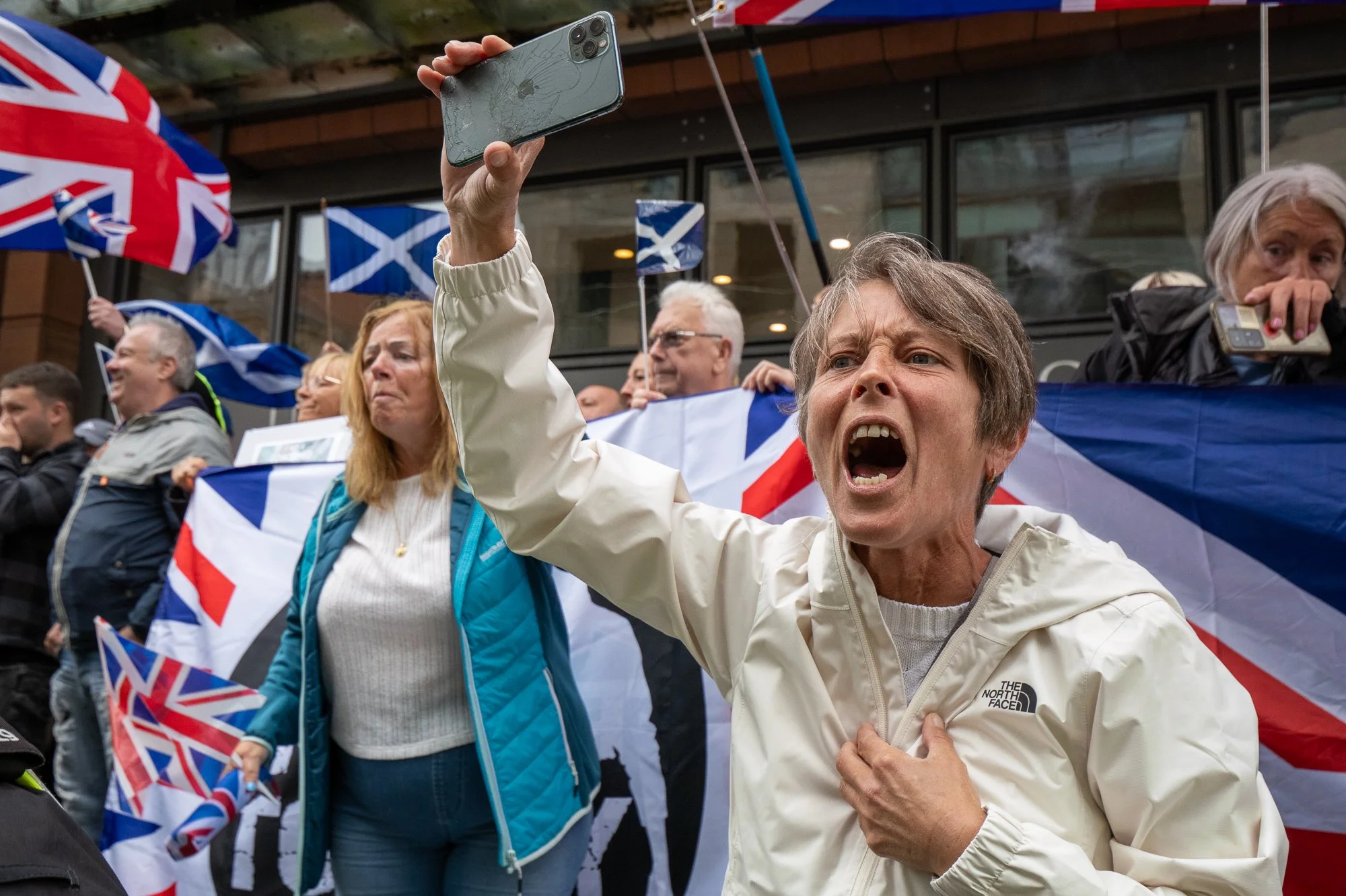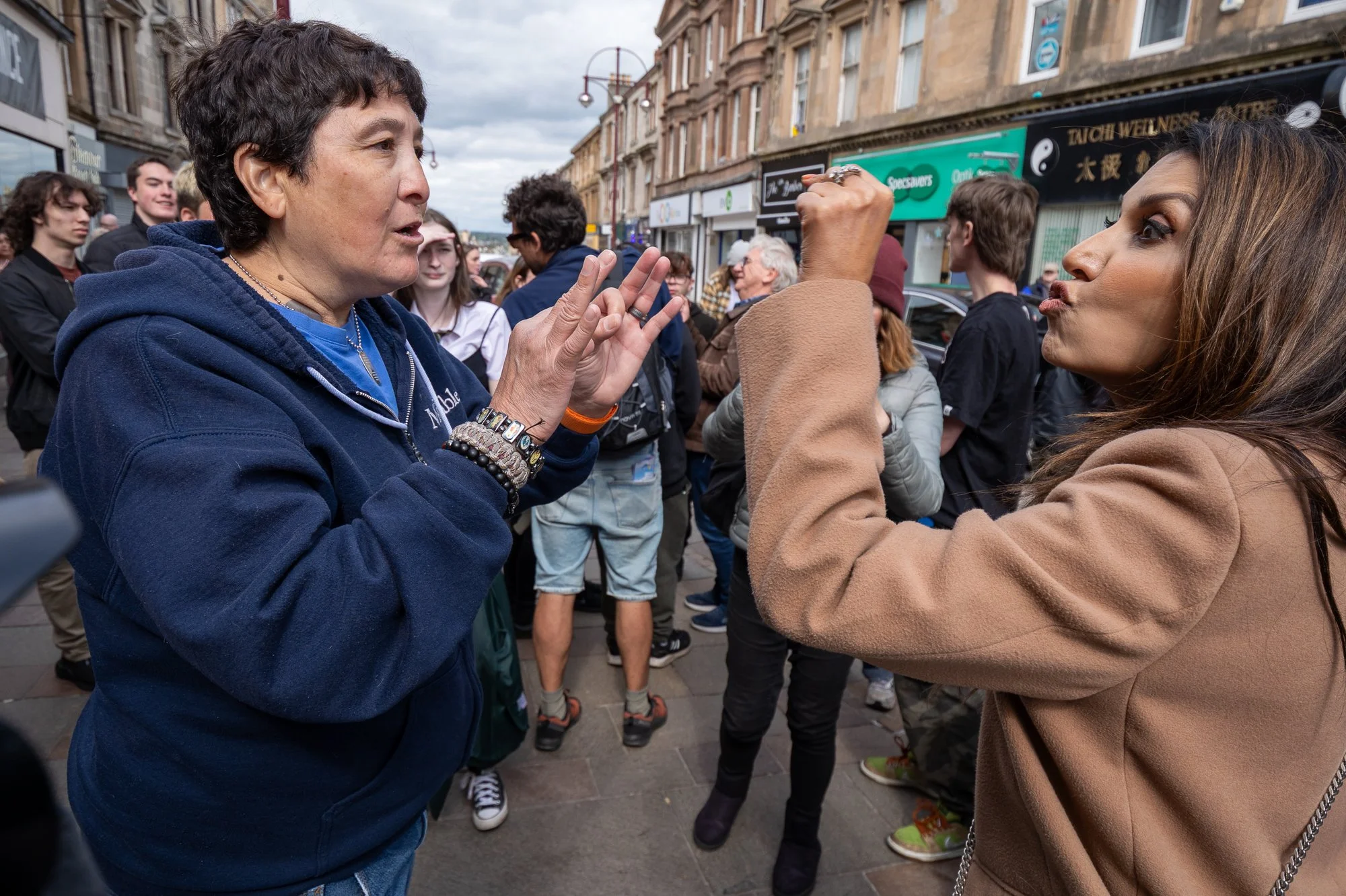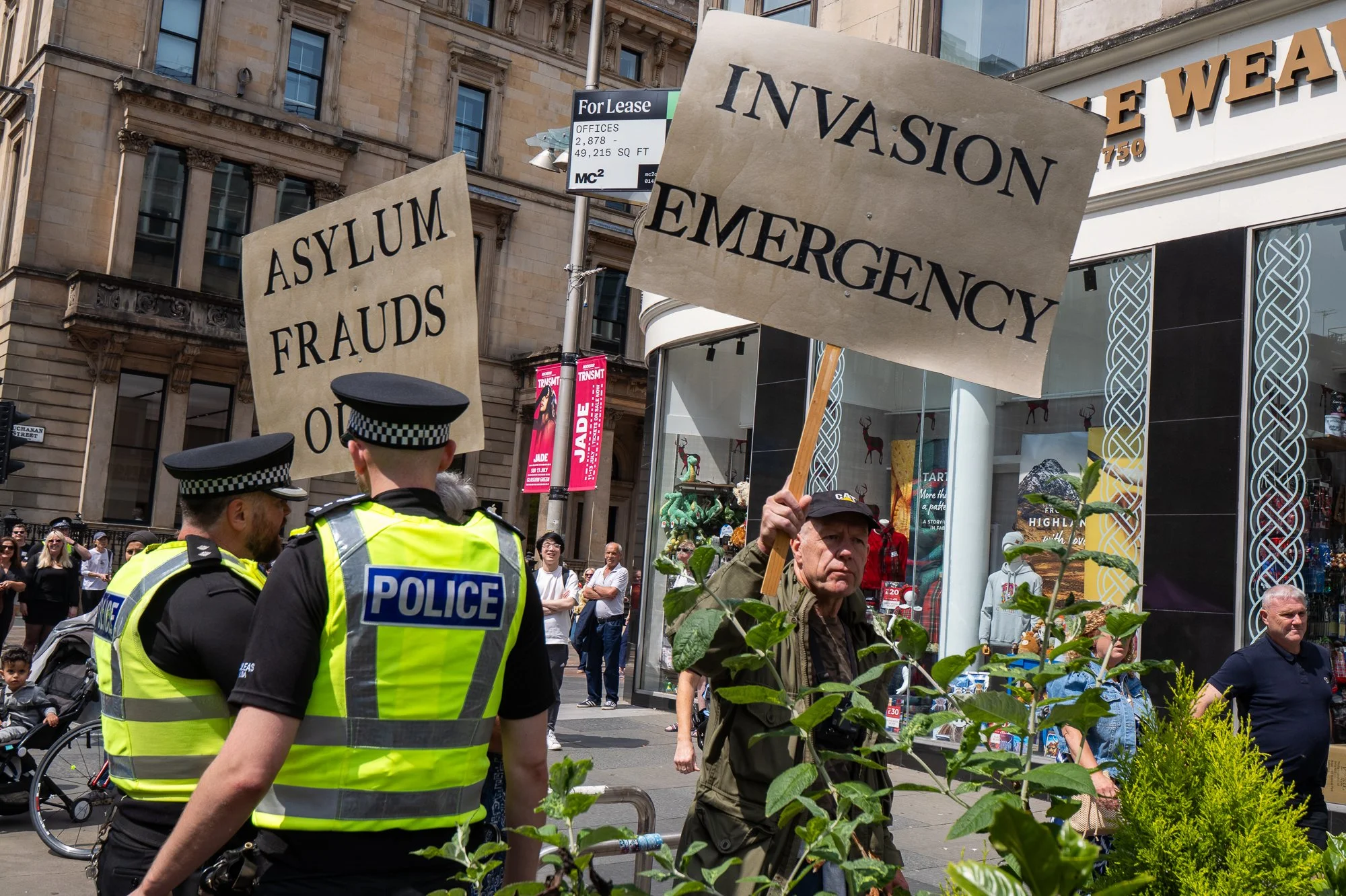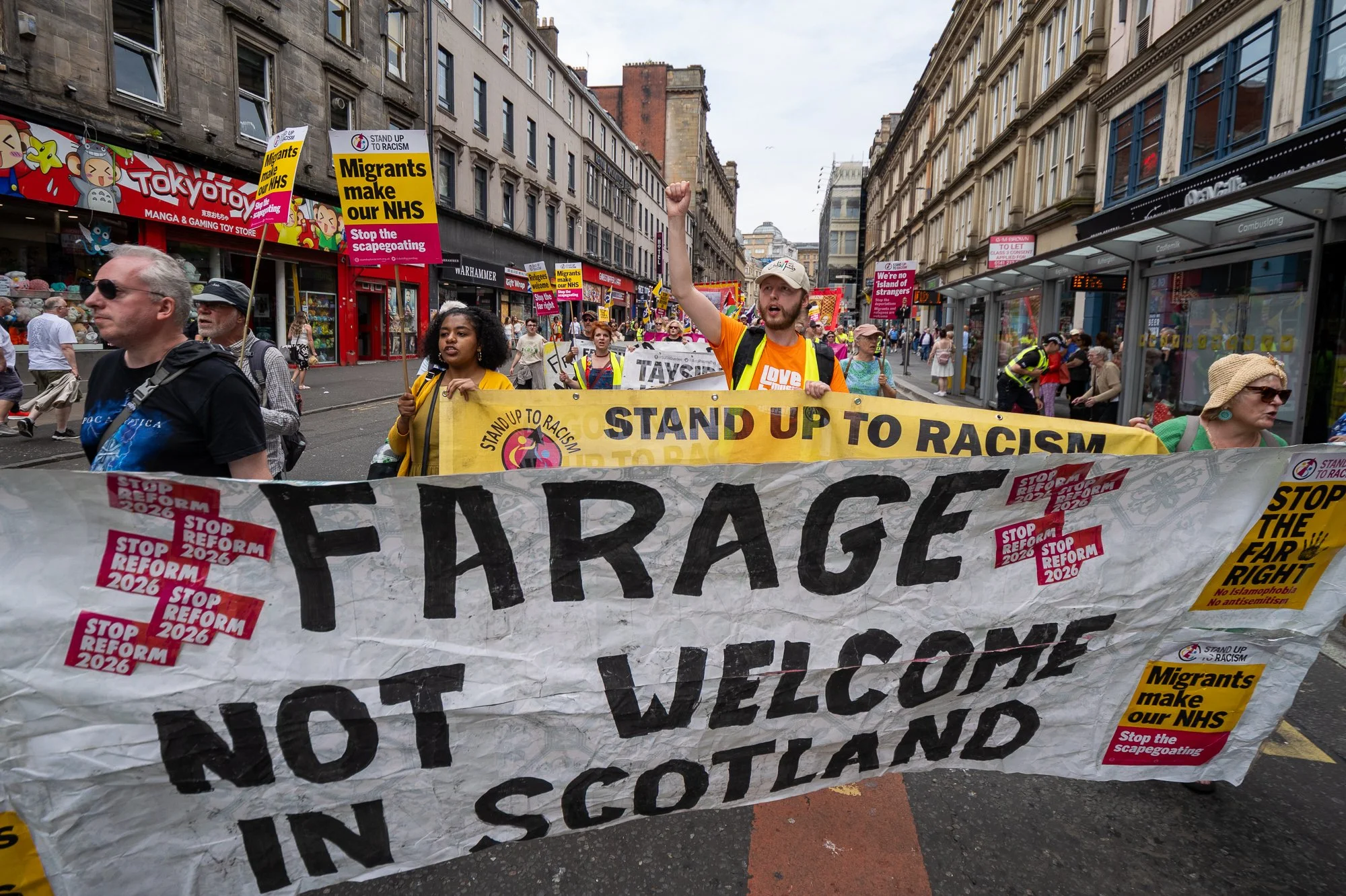Recording the life at hand through photography
Immigration Protest in Scotland
Falkirk, a historic town in central Scotland, is renowned for its landmarks, including the Falkirk Wheel—a rotating boat lift—and the Kelpies, giant horse-head sculptures that celebrate the local heritage. Once a key site in Scotland’s industrial past, the town now blends history, modern engineering, and easy access to both Edinburgh and Glasgow. It is also the scene of one of Scotland’s current immigration battlegrounds, where activists from the political left and right face off each week outside a hotel housing asylum seekers.
The protests take place outside the Cladhan Hotel, which is used to accommodate asylum seekers under the UK Home Office temporarily. Organised by groups such as Save Our Future and Our Kids Futures, the demonstrations focus on claims of “uncontrolled illegal immigration” and a lack of transparency around placements in the community. Counter-protests, led by Stand Up to Racism Scotland, Falkirk Trades Union Council, and residents, have voiced support for asylum seekers with banners reading “refugees welcome here.” Falkirk Council has raised concerns about misinformation, safety, and the divisive impact of the rallies.
Over the past year, similar demonstrations have occurred in other Scottish towns. Glasgow and Edinburgh, the country’s two largest cities, have witnessed an increasingly frequent occurrence of clashes between left- and right-wing groups. Participation on the left has largely remained steady, while right-wing numbers have grown—though they are still generally outnumbered. Scotland has, for now, avoided the worst of the xenophobia that has affected England.
Years of austerity, cuts to public services, and industrial scale political incompetence have created fertile ground for public frustration. Asylum seekers have been cast as scapegoats for social ills. Politicians such as Nigel Farage, leader of Reform UK, have promoted mass deportation as a solution, although Britain lost the ability to repatriate unsuccessful asylum applicants after leaving the EU. The fact that Brexit was his doing goes largely unmentioned. The “Stop The Boats” mantra of the previous Conservative government has continued under the new Labour administration—two cheeks of the same arse.
As a photographer covering the protests, I set aside my personal beliefs. Yet it is hard not to notice that most participants are ordinary people, likely with far more in common than separates them, hurling abuse over the same root problem: a profound failure of government. Shouting at a hotel is easier than confronting systemic issues, and no one expects a reply.
Recent reports from Falkirk suggest a cautious turn toward mediation and community healing. Outside agitators are reportedly being discouraged, and educational programmes are underway to counter myths about asylum seekers. While the hotel has been used for this purpose for four years, tensions escalated after an immigrant was jailed for sexually assaulting a local girl—not simply because asylum seekers arrived in the town.
If this mood spreads, it could reshape the local debate. As banners often remind onlookers: it is not the occupants of the small boats who are the problem, but the owners of the large ones.






























